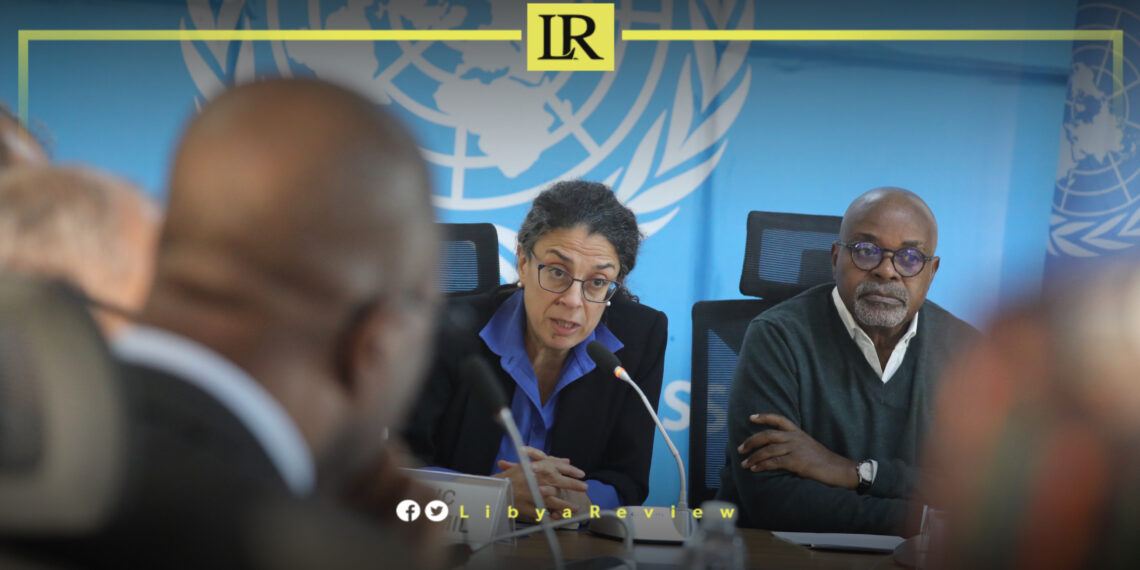On Thursday, Stephanie Khoury, Deputy Special Representative of the UN Secretary-General, held a high-level meeting with African ambassadors and representatives in Libya to discuss the country’s prolonged political impasse and urgent humanitarian needs.
The meeting, which also included Ines Chuma, Acting Deputy Special Representative and Humanitarian Coordinator, aimed to build momentum for national elections and tackle the pressing challenges facing Libya.
Khoury emphasized the United Nations’ efforts to break the deadlock that has stalled Libya’s progress toward stability. She outlined a comprehensive political roadmap designed to unify Libya’s fragmented institutions and pave the way for credible national elections. “Overcoming this stalemate is critical for restoring legitimacy to Libya’s governance and securing a future of stability and prosperity,” Khoury said during the meeting.
Chuma highlighted the UN’s humanitarian and development initiatives, focusing on supporting refugees, migrants, and displaced communities across Libya. She stressed the importance of international coordination to address Libya’s growing challenges, including the influx of Sudanese refugees and the need for enhanced border management to curb trafficking and irregular migration.
The discussions also covered critical issues such as disarmament, demobilization, and reintegration (DDR) of armed groups—a vital step in reducing militia influence and ensuring security. Both UN officials and African ambassadors agreed that effective border control and support for local development are key to stabilizing the country.
The ambassadors expressed strong support for the UN’s efforts and reiterated their commitment to working closely with the mission. Both sides agreed to maintain regular consultations and enhance collaboration to address Libya’s most urgent challenges.
Libya has been mired in turmoil since the 2011 overthrow of Muammar Gaddafi, with rival administrations in Tripoli and the east vying for power. Efforts to hold national elections, initially planned for December 2021, remain stalled due to political fragmentation, foreign interference, and security concerns.


